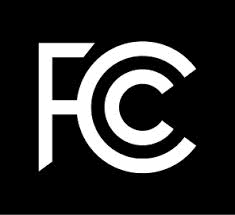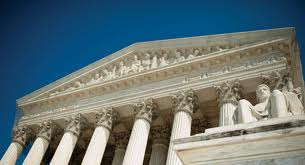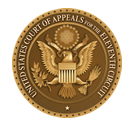A recent decision found there’s a difference between advertising and telemarketing messages under the TCPA and that difference may have created a horror story for one movie promoter under the decision from the Eighth Circuit Court of Appeals. “Liberty. This is a public survey call. We may call back later,” was the prerecorded message left twice on the voicemails of plaintiffs Ron and Dorit Golan. The calls, if answered, would have also played a 45-second scripted message that included a survey and promotional material about the movie. However, because the plaintiffs did not answer the calls, they only heard the short message regarding…
Posts published in “TCPA”
The FCC’s much anticipated TCPA rulings were released this past Friday. On Friday, July 17, our panel of esteemed TCPA attorneys – both plaintiff’s and defense – will give you a first look at how the rulings will drive TCPA litigation, from both the plaintiff’s and defense perspective. I expect to hear some interesting debate. Here are the salient issues we will cover: Dialer Technology What do the rulings say about predictive dialers, preview dialers and future dialing technology? What does the FCC mean what it talks about “capacity” and “calling from a list of numbers?” Can you ever be certain…
The Federal Communications Commission has issued its Declaratory Ruling and Order FCC 15-72 addressing more than 20 requests for clarification or other action relating to various issues under the TCPA. One of the dissenting Commissioners Ajit Pai noted that, “[r]ather than focus on the illegal telemarketing calls that consumers really care about, the Order twists the law’s words even further to target useful communications between legitimate businesses and their customers. This Order will make abuse of the TCPA much, much easier. And the primary beneficiaries will be trial lawyers, not the American public.” A copy of the Order is available…
The FCC voted a 3-2 majority ‘yes’ today on a TCPA declaratory ruling to expand the law in an attempt to prevent unwanted robocalls and “robotexts,” as well as spam and telemarketing calls to wireless phones. The package of rulings also included the approval of robocalling technologies, oral revocation of consent, redefinition of autodialers, as well as other stipulations and exemptions. The rulings addressed 19 petitions for declaratory rulings, one petition for rulemaking and one request for clarification. The rulings, as of this writing, have not been released. The commissioners’ discussions indicate they will address “autodialers,” and some emerging technologies. Exceptions…
U.S. lawmakers urged the Federal Communications Commission and the Federal Trade Commission to reconsider exemptions to the FCC’s new proposal to update rules that protect Americans from unwanted sales calls, saying that the reforms may not be effective in reducing TCPA violations. In advance of the FCC meeting to vote on Chairman Tom Wheeler’s proposal, U.S. Rep. Tony Cardenas, D-Calif., and fellow members of the House Committee on Energy and Commerce Reps. Jerry McNerney, D-Calif., Leonard Lance, R-N.J., and Gus Bilirakis R-Fla. said the increased TCPA rules in the FCC’s proposal may in fact make it easier for companies to target consumers, rather than…
FCC Chairman Tom Wheeler’s TCPA “Fact Sheet” on forthcoming declaratory rulings issues should scare the heck out of any business using any telephone to reach potential, current or former customers. I believe the rulings will have a substantial impact on customer operations in the financial services industry. I expect the Declaratory Rulings to touch a number of crucial issues driving TCPA litigation. So I’ve assembled a team of seasoned TCPA litigators to talk with you on Monday, June 22 June 29, on how these declaratory rulings will affect the risks of using telephone technology. Here are the hot issues I expect the ruling to…
FCC Chairman Tom Wheeler announced Wednesday that the FCC will move to protect consumers from unwanted robocalls and texts like never before by proposing new standards for TCPA regulation that will be voted on next month. Establishing new rules, closing loopholes, and simplifying the opt-out process for consumers are the three main goals of the proposal, which Wheeler calls “yet another win for consumers.” The FCC considers this proposal to be one of the most significant consumer protection actions since it helped to establish the Do-Not-Call Registry in 2003. The crackdown on robocalls, texts, and telemarketer calls; the number one source of…
The U.S. District Court for the Northern District of California recently denied a motion to compel arbitration filed by two allegedly affiliated banks that issued department store credit cards, and the one of the issuing banks and another entity that serviced the cards, in a case alleging they violated the federal Telephone Consumer Protection Act by calling the debtor’s cellular phone in an attempt to collect on the credit card debt. A copy of the opinion is available here. The plaintiff stopped paying his credit card in July 2013 and sent a letter to the issuing bank advising that he could no longer make payments and…
Statutory damage claims, like those under the TCPA and the FCRA, will be scrutinized in the next session of the U.S. Supreme Court and its decisions could have broad implications for the financial services industry. Today we look at one of the cases the court will consider, Gomez v. Campbell-Ewald Co. The case considers whether an offer of complete relief to a litigant will extinguish both her individual claims and, prior to class certification, render her class claims moot. A decision will likely impact litigation under the FDCPA, TILA, EFTA and other federal laws, which can expose financial services companies to…
As big data grows, so does the scale of TCPA violations, and with that the settlements; one of the largest in TCPA history was in the news last week. In a California district court, attorneys who guided consumers in suing a bank for a $32 million settlement were denied a bid to increase their fees to $8 million. The settlement was the largest TCPA deal to be approved at the time, settling the case in which the plaintiffs claimed they had received automated phone calls from the defendants without their consent. However, this past July saw a $75.5 million settlement granted preliminary approval in…
With its decision in Crawford v. LVNV Funding, LLC still leaving a bad taste in the collection industry’s mouth, the Eleventh Circuit has provided some solace to the financial services industry with its decision in Mais v. Gulf Coast Collection Bureau, Inc., No. 13-14008 (11th Cir. Sept. 29, 2014). The key holding was the reversal of the district court’s interpretation of “prior express consent” under the Telephone Consumer Protection Act. Plaintiff sued the medical service provider and its debt collection agent for making autodialed or prerecorded calls to his cellular telephone in violation of the TCPA. His wife had given his cellular telephone…
Last month’s 11th Circuit Court of Appeals’ decision that allowed a Fair Debt Collection Practices Act claim to be made against a bankruptcy proof of claim filed on out-of-statute debt will get a rehearing if a petition filed by LVNV Funding, LLC is granted. An Outlier Decision Crawford caused a stir when it was issued a few weeks ago because it upset a well-settled body of law that prohibited such FDCPA claims. And although en banc requests are often denied, when a decision conflicts with an established body of law there is a better chance it will be granted. That may be what happens here.…









